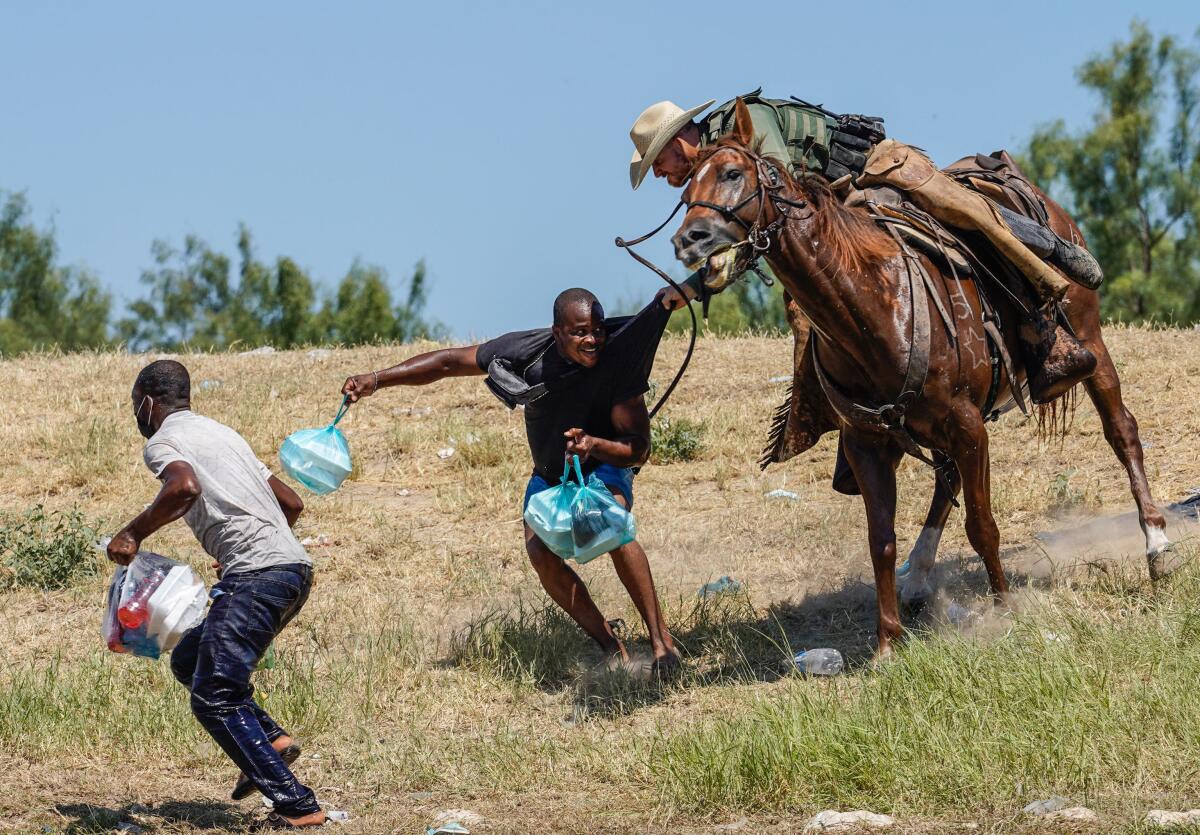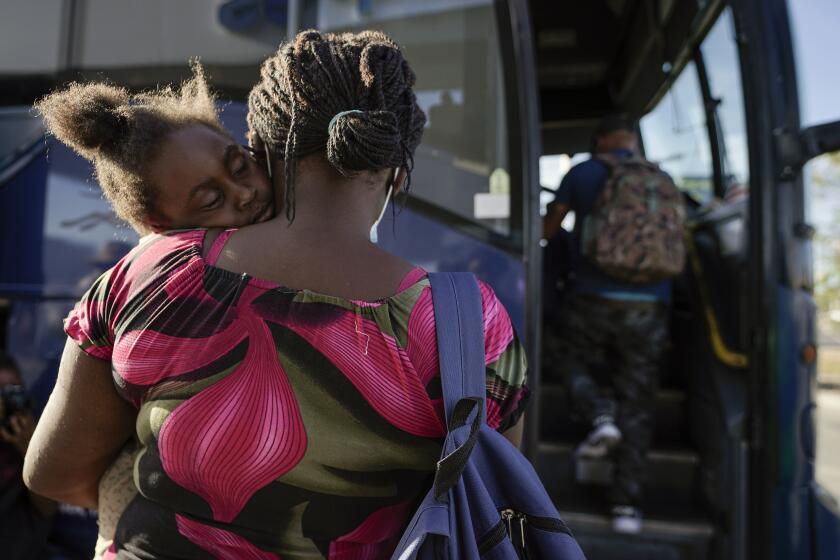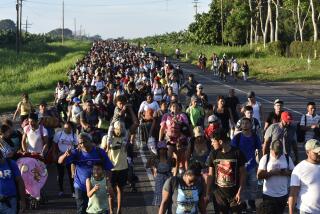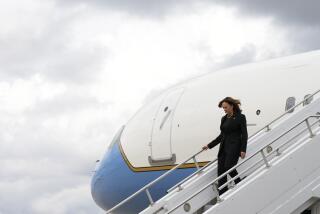Border agents used ‘unnecessary’ force against Haitian migrants, report finds

- Share via
Border Patrol agents on horseback used “unnecessary force” when they confronted a crowd of Haitian migrants in Texas in September, according to a report released Friday.
The dramatic confrontation, with mounted agents towering over migrants while trying to block them from crossing the Rio Grande into the U.S., was part of a “chaotic” situation, and agency leaders were partly to blame, Customs and Border Protection Commissioner Chris Magnus said at a press conference.
But, Magnus added, “there is no justification for the actions of some of our personnel, including unprofessional and deeply offensive conduct.”
One agent said to a migrant, “Hey! You use your women? This is why your country’s s—, you use your women for this,” according to the report by the agency’s Office of Professional Responsibility.
U.S. authorities are allowing Haitian migrants at a massive camp in Texas who hold blue and yellow numbered tickets to remain in the country.
The agent then “acted in an unsafe manner,” pursuing that same migrant along the river’s edge and “forcing his horse to narrowly maneuver around a small child on a slanted concrete ramp,” the report said.
Two agents used their horses to block migrants from climbing to shore from the Rio Grande, according to the report. They chased those who emerged from the river, “including grabbing one [man] by the shirt and spinning him around,” the report said.
Four agents involved in the Sept. 19 incident have been referred for proposed discipline, but the results of that process have not been finalized, senior Customs and Border Protection officials said.
Media coverage, including an AFP photograph showing an agent on horseback leaning over and grabbing a Haitian man by the shirt while a rein dangled, had raised questions about whether agents whipped migrants.
The investigation found no evidence that agents “struck, intentionally or otherwise, any migrant with their reins.” Magnus said that the agents were not carrying whips.
The incident led to widespread outrage, prompting President Biden to criticize the response of the agents.
Driven by natural disasters, poverty and political unrest, around 15,000 Haitian migrants were gathered under a bridge in Del Rio, Texas.
Many had tickets that gave them a place in line for processing by border agents. Because of the extreme heat and lack of amenities, agents allowed the migrants to cross the river to get food and water on the Mexican side, then cross back, the report said.
That afternoon, Texas Department of Public Safety officers were trying to disperse the crowd of migrants and keep them from crossing into the U.S., according to the report. They asked the mounted Border Patrol agents for help.
The Border Patrol was legally required to “inspect” the migrants, who were already in U.S. territory once they got halfway across the Rio Grande, the report said. The agency’s mission that day was not to block the migrants from going back and forth across the river, according to the report.
“At the time the agents used or threatened to use force, the migrants were not threatening” the agents, the report said. “Instead, they were attempting to enter or return to the United States, some carrying tickets previously issued by the [U.S. Border Patrol] and many with food for their families.”
Some critics have raised the question of racism against Black migrants. And the head of Customs and Border Protection has strongly denounced the coins.
Department of Homeland Secretary Alejandro N. Mayorkas said in a statement Friday that the agency must do better.
“The misconduct of several individuals does not reflect the brave and distinguished service of the Agents of the United States Border Patrol,” Mayorkas said. “The organizational failures of policy, procedures, and training that the investigation identified were a disservice to the Agents and the public they serve.”
Mayorkas said that the Border Patrol is implementing “needed” reforms.
More to Read
Sign up for Essential California
The most important California stories and recommendations in your inbox every morning.
You may occasionally receive promotional content from the Los Angeles Times.













